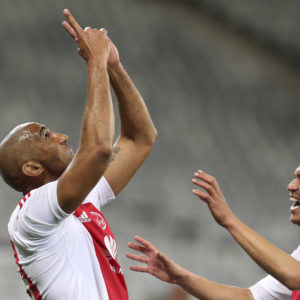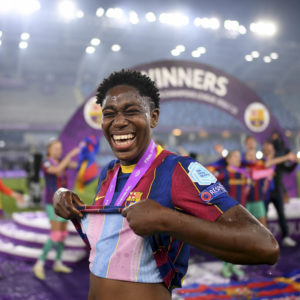KZN Academy aims to be No. 1 in Africa
In just a few years, big dreams have come true for some footballers who have attended the academy. And if the man behind its success has his way, this is just the beginning.
Author:
28 February 2022

The KZN Football Academy has emerged as a mine of South African talent, where rough diamonds are discovered and polished to shine on some of the biggest stages in the country and in Europe. Since its inception in 2014, the academy has produced talented players such as Sphephelo Sithole (based in Portugal), Thabo Cele (Poland) and Nkanyiso Zungu (Orlando Pirates).
The Durban-based academy is the brainchild of Carlos Catalino, 50, who got the idea in 2008. He wanted to work with former Bafana Bafana coach Trott Moloto, but had to shelve this plan when Mamelodi Sundowns approached the latter with a deal he couldn’t turn down. It was only after Catalino roped in renowned administrator and former Bafana Bafana assistant team manager Gugu Marawa that the plan finally went ahead.
Catalino, the academy’s managing director, says there was a need for a proper academy structure in South Africa. “We engaged with [South African Football Association president] Danny Jordaan as we wanted at least one pilot development structure in each of the nine provinces, but unfortunately Safa approved only the KZN Academy.
“Then we started to scout players across KwaZulu-Natal. We built a profile from Under-11 to Under-19 of what we look for in players. We look at the special aspects, from physique and strength to natural ability and ball control. Then we develop players to be ready for professional contracts, whether locally or in Europe.”
Related article:
Catalino says the scouting model of the academy, which accepts between 120 and 130 players annually, has exceeded expectations. “What we achieved in the past six years is phenomenal.”
The Germiston-born administrator has a wealth of experience in football development. He played a role in the partnership between Bloemfontein Celtic and Portuguese giants Sporting Lisbon in 2006, which later helped him to stage the Durban Under-19 International Tournament featuring Europe’s biggest clubs, including Benfica, Roma and Arsenal.
“Celtic was going to train youngsters and shape them to be ready for professional contracts so that Sporting would give them a platform to showcase their talent. The deal was a game-changer for South African football, but unfortunately it failed due to the change of management. Afterwards, I attended many training programmes with Sporting.”
At Sporting he worked with Paulo Cardoso, who was the club’s scout and head of international recruitment. He is credited for discovering Cristiano Ronaldo. Catalino also worked with Pedro Mil-Homens, then the chief executive of Sporting’s academy and now the director of Benfica’s.
Achievements and disappointments
“Through that network, it was easy to invite the best academies and add the South African national team so we could stage the Durban International Under-19 tournament,” says Catalino. He adds that the aim was also to scout players who would “prove to the rest of the world that South African players were as good as African players coming from Ghana, Ivory Coast and Nigeria”.
“And we needed to show the rest of the world that we can compete with big-name academies. The tournament was a very big success as the likes of Cele and Sithole ended up being scouted by those clubs we invited. But unfortunately, due to politics, the tournament ended up being stopped, which is a shame. Because you stop a good tournament and you replace it with nothing.”
Cele, who was a standout performer in the tournament, earned a dream move to Benfica in 2017 to become the first South African to play for the club of the legendary Mozambique-born Eusebio. According to Sphamandla Nene, 21, Cele’s former teammate, this was “big for South African football” and it also inspired him.
Related article:
“When I heard about his move to Benfica, I told myself what can stop me from achieving my goals in life. I come from the township and life there is very bad. I made a lot of sacrifices to get where I am and to escape the township life, which would have cut my potential short,” said Nene who earned a professional contract with AmaZulu straight from the academy.
“To hear that your former teammate has signed for a big club in Europe inspired me to believe that I’m on the right track and a step closer to my dream. When I came to the academy, I was lacking some basics, but with proper coaching I managed to get it right. And that trip to Portugal with the academy in 2018 as the captain of the side was an eye-opener and made me realise that a professional contract is one step away.”
Laying the groundwork
Siboniso Vilakazi, AmaZulu’s DStv Diski Challenge coach, has experienced first-hand the impact the academy has had in nurturing talent. “Our province is rich in terms of talent, but we needed people who were committed to finding and working on it,” says Vilakazi, who is from Mtubatuba in northern KwaZulu-Natal.
“The academy came with what we had been lacking and it’s working fine. Look at how many players have been identified since they started to scout talent across the province. I’m so happy that these players will further assist us, even at national team level. The project even assisted me to sharpen my coach skills, which further made me progress in my career.”
But it hasn’t been smooth sailing for Catalino. “The biggest challenge we face is financial. The work the academy has done from the start until now is incredible. But unfortunately, the financial backing to assist us with essential things remains a struggle,” he says.
Related article:
“When it comes to development, no one is willing to inject funds. The problem is that people don’t understand the role sports can play in our lives. For instance, if you are struggling academically but you have sporting attributes or artistic talent, you can be able to showcase it and succeed.”
The other challenge has been renovating the academy’s facilities at Durban Rovers opposite Kings Park Stadium, where its players train. “There has been some red tape and we have done only 10% since 2015. But we are still negotiating with individual parties to finish it. My biggest goal despite these challenges is to have the facilities up and running in 18 months as it’s one of the requirements for us to be a Fifa-accredited academy.
“We also want to be the No. 1 ranked academy in Africa and among the top 10 in the world in the next 10 years. And we want to keep producing more talented players to ply their trade in European leagues, as we have done in the past six years.”



